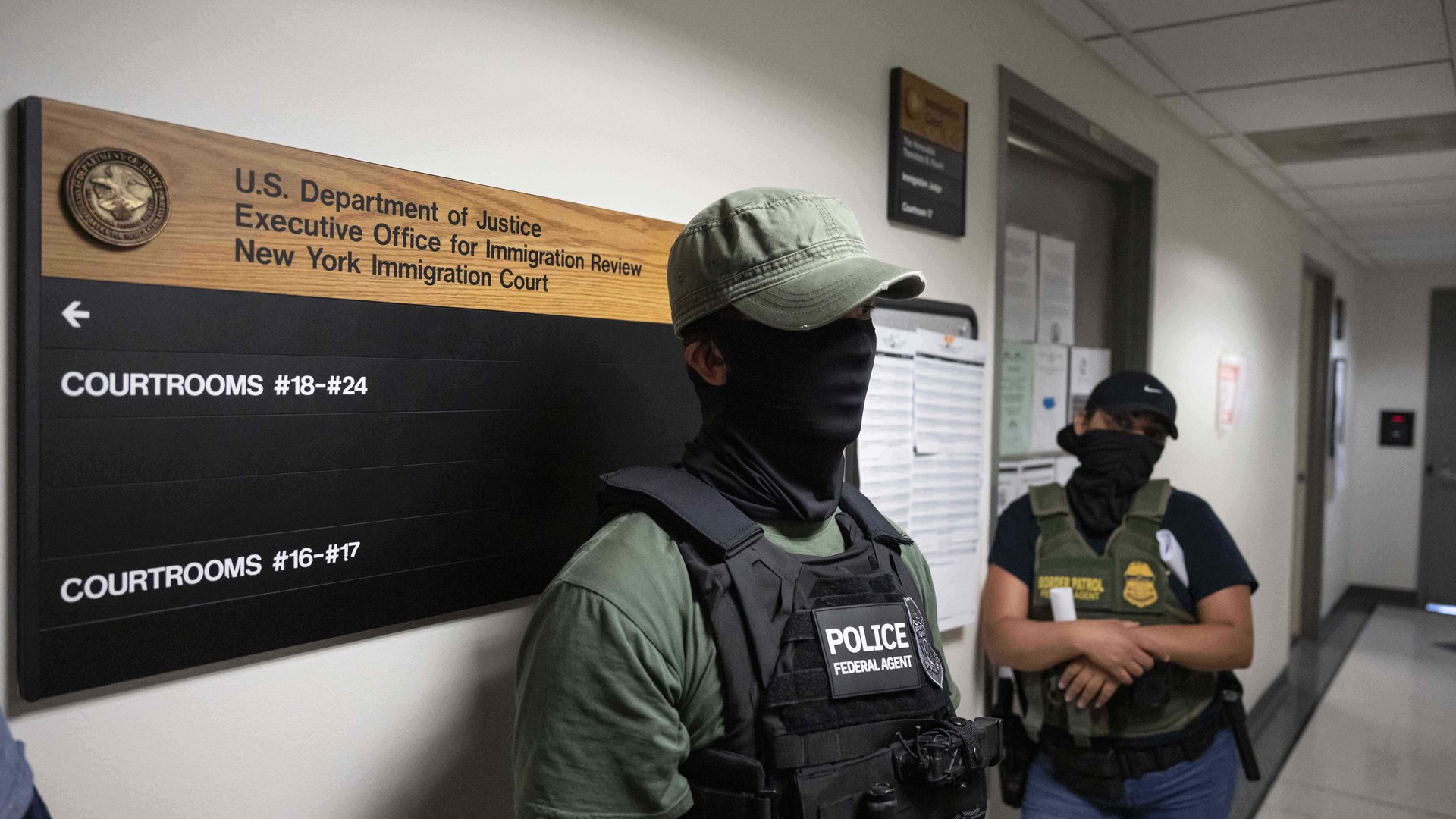Dear Friend of Press Freedom,
I’m Lauren Harper, the first Daniel Ellsberg chair on government secrecy at Freedom of the Press Foundation (FPF), and welcome to “The Classifieds.” Read on to learn about this week’s top secrecy news.
Judge to Border Patrol chief: ‘How about by Friday, you get a camera?’
U.S. District Judge Sara Ellis recently grilled U.S. Border Patrol chief Gregory Bovino about ongoing immigration operations in Chicago. After underscoring that Border Patrol must leave journalists alone while they are doing their job, Ellis asked about the status of her order that all agents involved in Operation Midway Blitz wear body cameras. Bovino said he believed 99% of agents had been issued cameras, although he also reported he’d yet to receive one. This prompted Ellis to say, “How about by Friday, you get a camera?” (I don’t know about you, but I’ll be filing Freedom of Information Act requests for Bovino’s camera footage starting on Monday.)
U.S. Immigration and Customs Enforcement and U.S. Customs and Border Protection were each granted “security agency” designations during President Donald Trump’s first term. This allows them more leeway to withhold information about immigration officials’ names, job titles, and salaries, and places their agents’ identity protections in the same category as high-level FBI and Secret Service agents. This makes accountability more difficult at a time when immigration officials have started wearing masks when they engage — sometimes violently and unlawfully — with the public.
So it’s a very good thing that Ellis is requiring body cameras. The public should quickly begin sending FOIA requests to make sure they are actually being worn and that agencies are releasing the footage in compliance with the law.
‘Unpaywalled: The case for making public records-based reporting free’
This week, FPF hosted an online panel with Katie Drummond, Global Editorial Director at Wired and an FPF board member, and Joseph Cox, co-founder and investigative journalist at 404 Media. We talked about how important it is to make FOIA-based reporting free (and how it can also be a good business move) and shared some of our favorite FOIA stories, tips, and tricks.
What I'm Reading
Is your medication made in a contaminated factory? The FDA won’t tell you
Drug manufacturers are required to submit reports to the U.S. Food and Drug Administration detailing when drugs have potentially been contaminated and could pose a safety risk. The FDA does not proactively post these reports on its website, and FOIA requests are often the only way the public sees the information. Even then, the agency redacts the names of the drugs that are made at the facilities, making it impossible for doctors and the public to know what drugs to avoid. The excessive secrecy literally makes us sick.
Updated process expedites public release of video requests
Phoenix officials claim the city is making public records requests for police body camera footage more efficient by making records requesters file two requests for the footage instead of one. In its new policy, the city will release all camera footage “with a medium blur applied across the entire video.” Requesters must then submit a second request for portions they want to see unredacted, and “Upon making a revised secondary request, a version with standard redaction will be provided for an additional nominal fee.” It’s unclear how the city decided this would speed up the process or if requesters were able to weigh in on the new policy.
The business of killing: Newly released data reveals Air Force suicide crisis after years of concealment
FOIA-released data is shedding light on one of the military’s biggest problems: staggering suicide rates. Data shows that roughly 41% of active duty Air Force deaths across a 13-year period “were suicides, overdoses, or preventable deaths from high-risk behavior in a decade when combat deaths were minimal.” The release of the information is notable; senior officials have routinely refused to acknowledge the severity of the military members’ suicide rate, “claiming that releasing detailed suicide information would pose a risk to national security.”
A costly radio system faltered when Texas needed it most
Kerr County, Texas, paid Motorola Solutions $7 million to install an emergency management radio network that excluded large swaths of rural Texas from its coverage area, including Camp Mystic, where 27 girls and their camp counselors died in a flood this summer. Contracting data and information obtained from local public records requests helped show the known deficiencies in Motorola’s emergency management radio network. Public bidding data also showed that losing bids had more extensive coverage than Motorola and were cheaper. The story is, among other things, another example of how local public records requests can tell some of the country’s most important stories.
Transparently yours,
Lauren Harper
Daniel Ellsberg Chair on Government Secrecy
Freedom of the Press Foundation





